The King of Jordan Royal Tank Museum Part 2
By Scott Roach
Photos by the Author
I took a look at the early vehicles from the collection at the King of Jordan Royal Tank Museum. This time, I will share photos from the post-WWII eras.
The Arab-Israeli Wars.
Jordanian Armed Forces 1950s-1960s Hall and Vignette Room
The 1950s and 60s saw an influx of new equipment to the Jordanian Forces, a change of name, role, and focus. This hall and the large Vignette room looks at the influx of vehicles from both the Soviet Union and the United Kingdom.
1948 and the state of Israel
With the recognition of the state of Israel in May 1948, several bordering Arab nations entered Israel. The Arab Legion crossed the Jordan Valley and headed toward the cities of Nablus and Ramallah including the occupation of Jerusalem. British officers including a Brigade Commander serving in the Arab Legion at the time were ordered to return to Jordan by the British Ministry in England, which they did, only to sneak back a few days later.
Jordan Valley Trench line M48 Patton 25 Lb field gun Willys Jeep 106 RCL Quad 501967 – Six-Day War
From 30 May to the 5th of June 1967, Israel took an initiative launched a series of pre-emptive and surprise air strikes into Egypt, Jordan, Syria, and Iraq. This was followed by a series of well-executed land operations which secured the territories of the Golan Heights in Syria, the Sinai Peninsula in Egypt and West Bank of the Jordan Valley.
1973 – Yom Kippur
In October of 1973, Egypt and Jordan launched surprise attacks against Israel. These attacks were supported by other neighboring Arab nations. These attacks although initially successful were stopped after the Israelis mobilized its Regular and Reserve forces. The swift actions and courage of the border security forces prevented large scale and major successes of the Egyptian and Jordanian Forces. This includes a major tank engagement over 3 days in the northern Golan heights region referred to as the Valley of Tears.
1973 to today
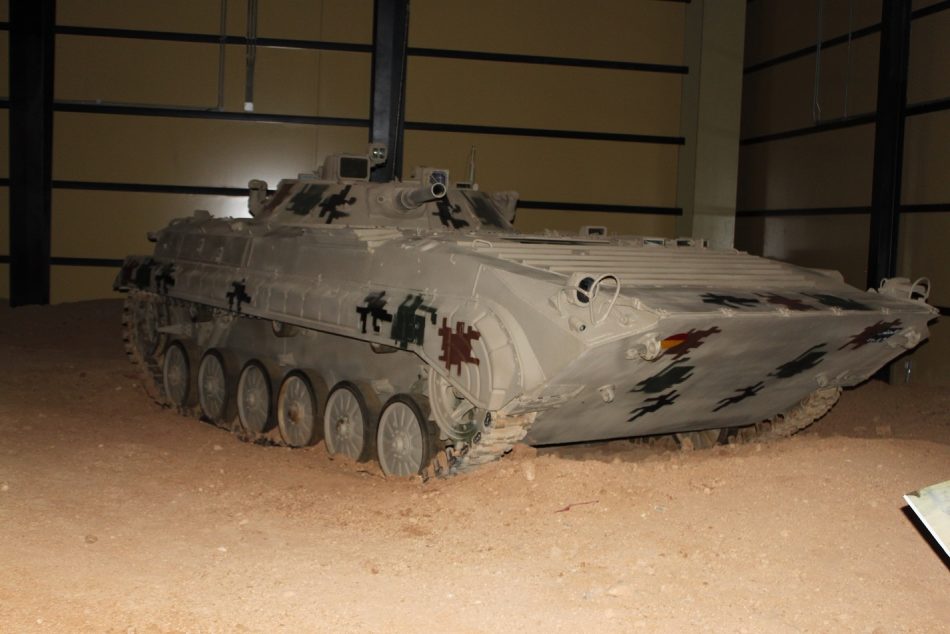
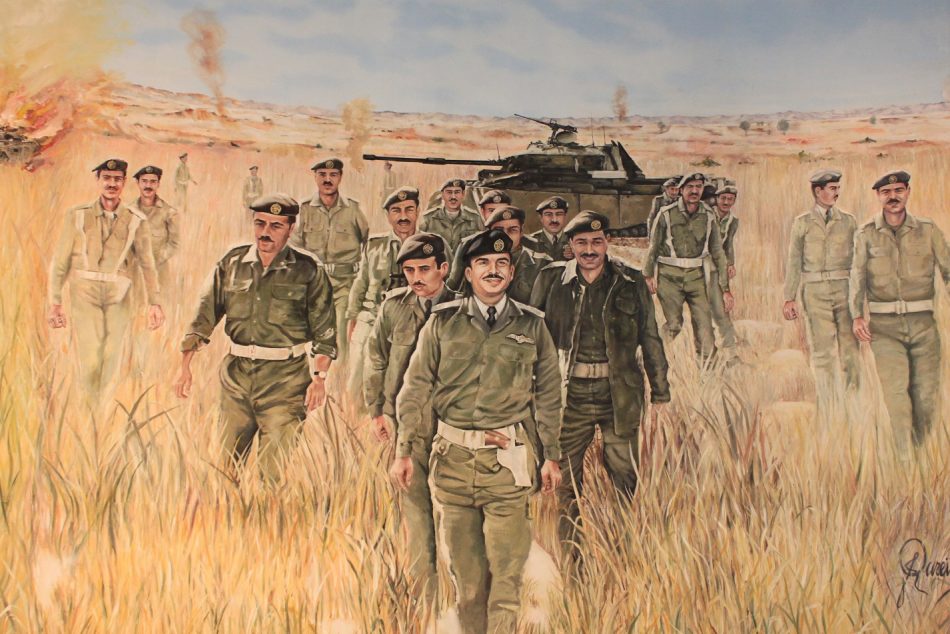
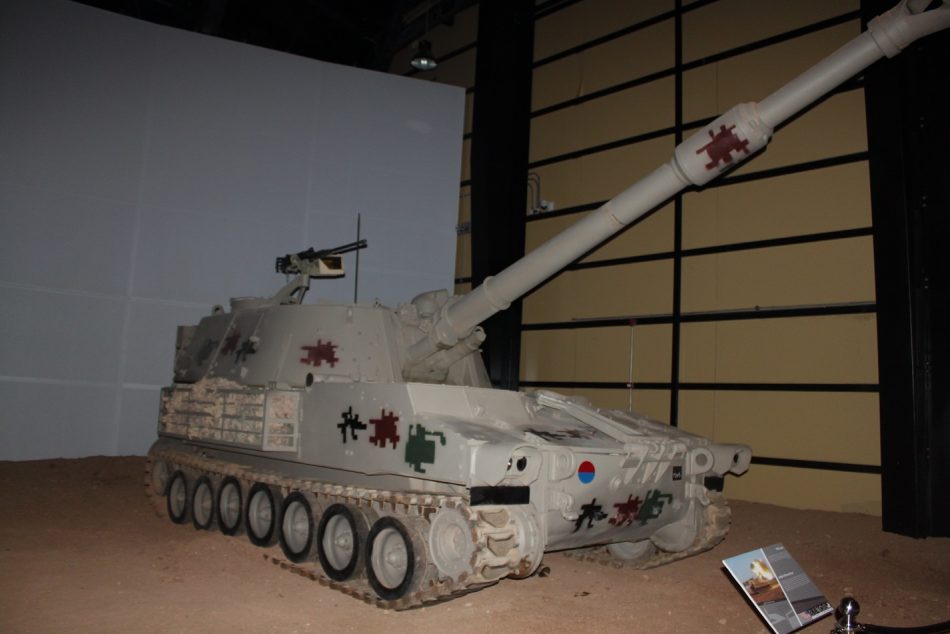
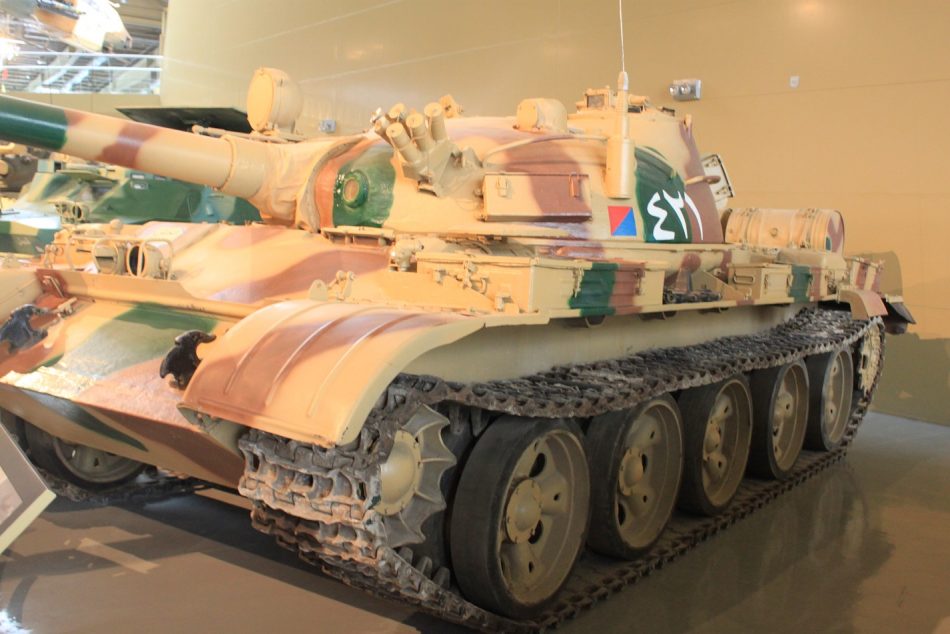
The Jordanian military throughout its history of armoured warfare has used a mix of primarily British and soviet equipment. US equipment has been obtained to meet gaps in capability such as Air Defence and artillery.
Although a peace agreement has existed between Jordan and Israel since 1995, the border between the two continues to be manned with regular forces and modern equipment. In addition to its closest contender, threats to the security of Jordan exist along its northern border with Syria and Iraq, this threat coming from ISIS and its associated terrorist allies.
International Hall
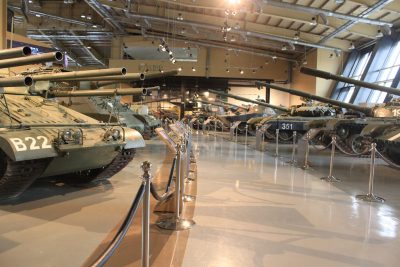
The International Hall was constructed and equipped with vehicles from over 20 nations and dating back to WW2. This is an impressive display of vehicles with some very rare vehicles. I found my favourite tank in this room. But more on that a bit later.
Soviet T64 South African Ratel Soviet PT 76 French Panhard EBR US Ontos US M36 Jackson Swedish Kurassier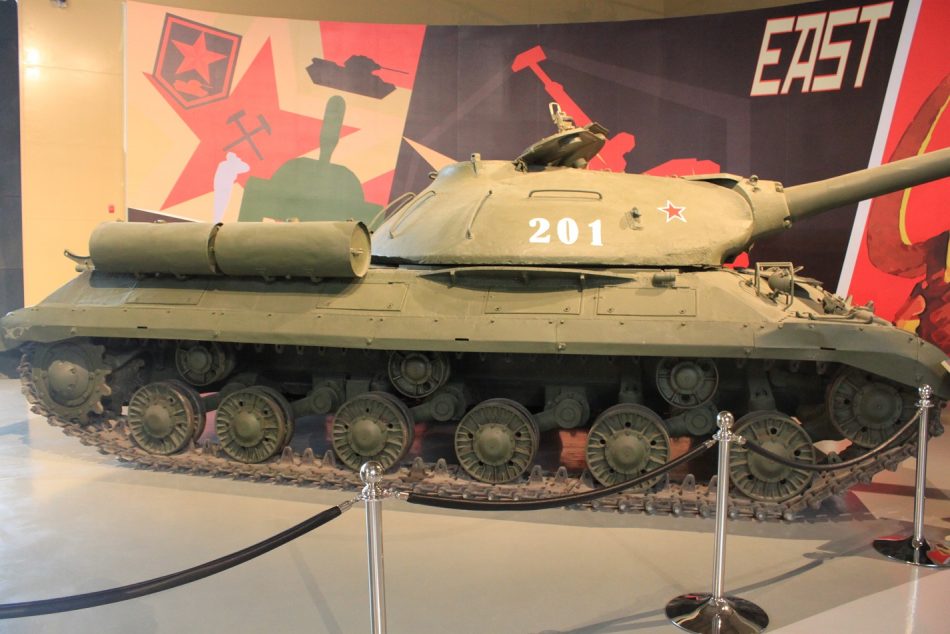
King Abdallah Design and Development Bureau (KADDB) Hall
The KADDB Hall was a bit of a surprise. I didn’t expect to see the developed changes and modernization plans for the future of Jordan’s military. The two vehicles that impressed me here was the conversion of a challenger hull into an APC, but this idea I guess was taken from the Israeli’s with the Namer APC which is based on a Merkava Hull. The second is the turret design of the Challenger, with an unmanned 120 gun system. The turret profile has been radically reduced.
MAP II APC – Challenger hull Falcon Turret on a Challenger hullMy Tank
Now I am a huge tank fan, having served on Leopard 1s. Walking around this Museum was like being in a candy store. But I found a vehicle, and to be honest, I didn’t even know it existed until here. The Swedish built Stridsvagn m/42. A medium tank built in 1941 that looks like a Panzer 38(t) on a steroid shot. Size-wise, considerably larger than the Panzer 38(t) and slightly smaller than a Panzer IV. This is my pick for this museum. It is in magnificent condition and I believe there are only 3 still intact in the world.
Well, there you have it, part 1. Overall, the Museum is superb. It is very modern, well laid out and with an outstanding display of old and modern-ish military vehicles from all periods of history and many regions around the world. I would highly recommend it if you are ever in mind to do some travels then Amman should be on your list of places to visit. Especially if you’re a vehicle nut.
I hope you enjoyed the article. I have over 300 photos and would be happy to share any or all for those interested. Just drop me an email at Scott.Roach23@gmail.com or message me here. The next museum article will be for the Israeli Tank Museum located at the home of the Israel Tank Corps in Latrun approx. 15 km south of Jerusalem.

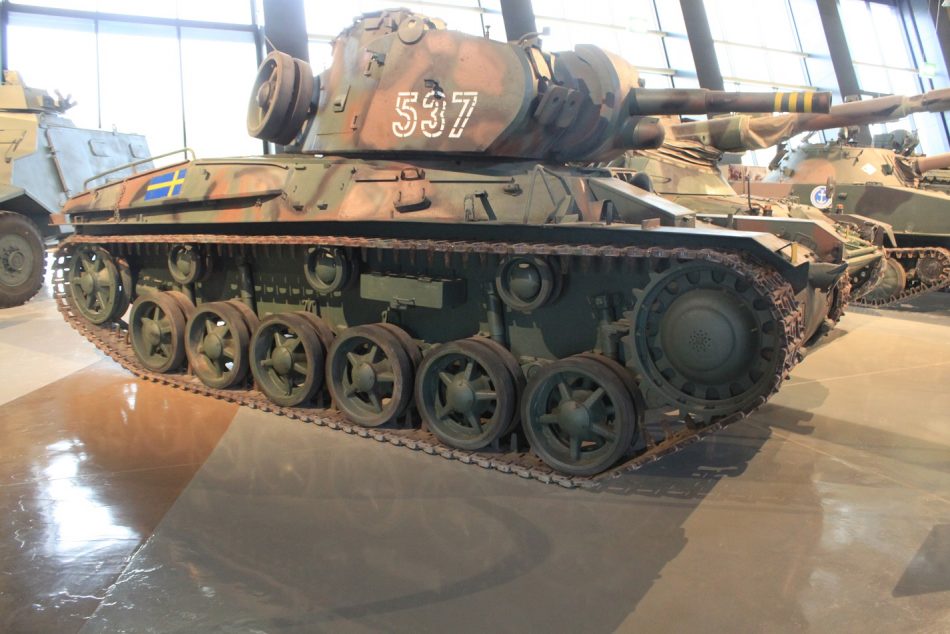
“Swedish Kurassier” … *triggered*
Of Course my favorites are the Syrian vehicles! Thanks for posting
Great articles. You’ve given me something to add to my bucket list. Cheers
That Chieftain Mk 5 looks a lot like a Challenger 1 :p
Yep, I think you are correct, a Challenger 1. Although the sign said Cheiftan, I should know better! ?
Inspiring Scott, need to go there! Thx.
Jordan did not attack Israel in 1973. Actually King Hussein warned Golda Meir of the surprise attack and guaranteed neutrality. The Syrians attacked on the Golan. Jordanan forces were sent later in response to a call for support from Damascus and they operate only inside Syrian territory.
Also the camoed IDF zelda, looks a Jordanian M113 to me…
Nice museum by the way.